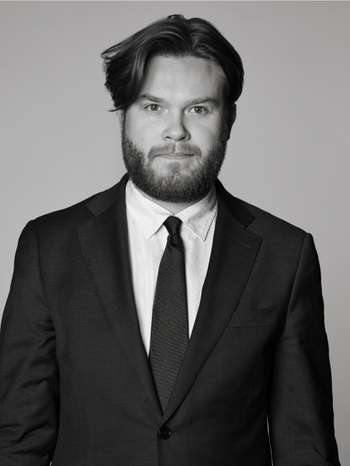Elias Erdtman
Moonlight over watercourse (Heyst-sur-Mer)
Signed E. Erdman and dated -84. Oil on canvas laid down on panel 29 x 18.5 cm.
Näyttelyt
Galerie Moderne, Stockholm, "Elias Erdtman", 22 October - 5 November 1942.
Muut tiedot
In the spring of 1884, Elias Erdtman left Stockholm and travelled to Düsseldorf to continue his studies. During the summer he stayed in Heyst-sur-Mer, a popular holiday resort near the Dutch border on the Belgian coast, where he painted plein-air studies. Several drawings from the sketchbook he used are in the collections of Nationalmuseum (NM 70-73/1961).
Erdtman returned to Düsseldorf in the autumn and stayed there until May 1885. In 1886 he travelled to Grez-sur-Loing, the artists' colony located 20 km southwest of Paris. The works he painted there are among his most well known. Perhaps his most famous motif is of the Hotel Laurent, a popular residence for artists (Nationalmuseum NM3966). In connection with the exhibition of Erdtman's works at the Galerie Moderne in Stockholm in 1943, the art historian Folke Holmér wrote (‘Konstkrönika’ in ‘Ord och Bild’, 1943, no 49, p. 54):
‘A series of finely tuned paintings from Heyst-sur-Mer on the Belgian coast were among the most beautiful in the exhibition, which as a whole testified to a modest and noble landscape painter, well worthy of the attention that perhaps had previously been paid to him to too little extent.’
Heyst-sur-Mer remained a popular holiday resort at the end of the 19th century. In 1898, the Swedish writer August Strindberg visited the place during his trip to Belgium, where he stayed with his friend, the doctor Gustav Brand (1857-1953), who had a practice in Brussels.









































